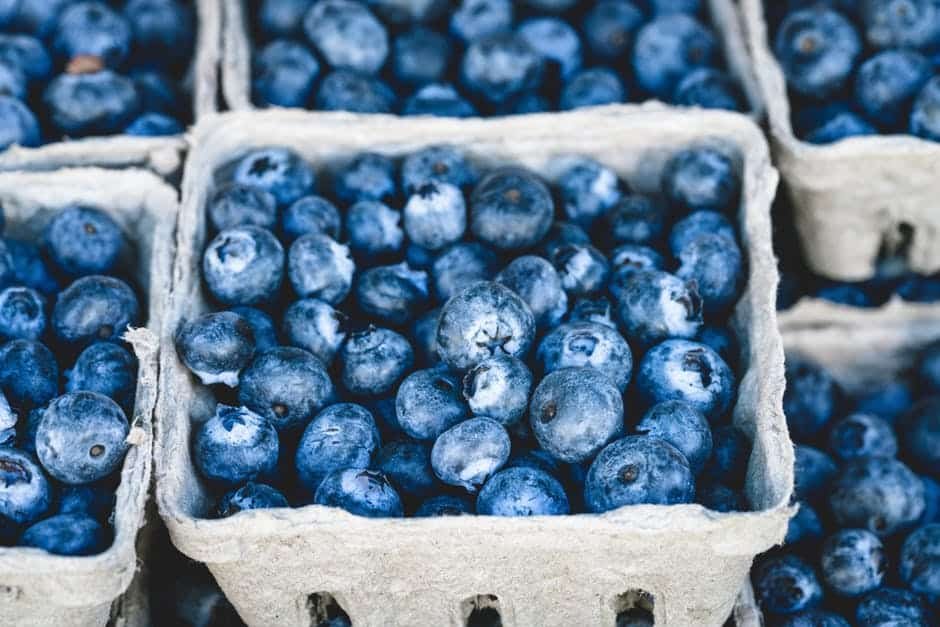Blueberries are a tasty fruit that many look forward to purchasing in midsummer.
Not only are they delicious, but they also have several health benefits, such as help with blood pressure and heart health. They’re also packed with vitamin C and K, which are great for your immune system and blood clotting.
But even though fresh blueberries are delicious, you may have some issues. Either you miss their taste during the offseason, or you can’t eat them quickly enough when they’re in season, leaving you with rotten fruit.
A solution? Fruit dehydration.
Find out how to dehydrate blueberries in this article, as well as how to store them and what to use them in.
How to Dehydrate Blueberries
By dehydrating your blueberries, you can make them last much longer than when fresh. This is because all the moisture is taken out of the fruit, which significantly slows down the rate of deterioration.
You can dehydrate them in 3 ways: by using a dehydrator, oven, or sun. Here are the 3 different ways to dry blueberries and the steps involved.
Using a Dehydrator
The dehydrator is the best method for drying blueberries, since it is specifically made for this purpose.
First, thoroughly wash all your blueberries. You can skip drying them, but this will make the entire process take longer. We suggest taking the extra step to dry each blueberry off.
You can make the dehydrating process even quicker if you poke holes in each blueberry. Or, you can dip them into boiling water so they crack.
Before you set your blueberries in the dehydrator trays, go through each one and remove any stems. You can do this while drying them off.
Do note that if you’re using frozen blueberries, you won’t have to do any of the above since they’re ready to go.
Make sure all the blueberries are in single layers on the trays. It’s ok if some of them are touching. Use the solid trays so none of the fruit falls through when they shrivel up.
Set your dehydrator’s temperature on 115 degrees Fahrenheit, then let it do its job for anywhere between 8 to 18 hours.
Start checking their “doneness” around 8 hours. You’ll know the blueberries are fully dehydrated when you can barely squeeze them. You can also taste a few along the way to see if there’s any moisture left inside.
Using an Oven
If you don’t have a dehydrator, you can still make dehydrated blueberries. To make them using an oven, you’ll follow all the steps above.
However, when you get to the tray part, use a baking pan with parchment paper on top. Set your oven to 225 degrees Fahrenheit and put the blueberries in for about 3 hours.
Once they’re leathery, take the tray out and leave them to cool. Then, you can store the blueberries.
Note that while this method is faster than using a dehydrator, it has its flaws. For one, your blueberries can quickly burn if you don’t watch them closely enough. Also, you can’t go straight to storing them; wait a bit for them to cool down.
Using the Sun
This method doesn’t cost you any money, but it takes the longest to do out of all 3 methods.
Prepare your blueberries, then set them out in the sun. You’ll need at least 100-degree heat for 3 to 4 days in a row.
In addition, you need to keep an eye out for greedy birds. A good way to protect your berries is to use netting.
Bring in your blueberries during the night, then set them back out when you wake.
How to Store Dehydrated Blueberries
Once you’re done dehydrating your blueberries, you can put them into an airtight container, such as a Mason jar. An alternative is a ziplock bag, but those may allow for some oxygen to get in, which may contribute to quicker deterioration.
If possible, place them in the refrigerator and/or freezer. This will help them stay good for longer.
How Long Will My Dehydrated Blueberries Last?
When it comes to dehydrated blueberries, if you store them in the right conditions, they can last for years. The key is to make sure the container is airtight and there’s as little moisture as inside.
You’ll get the best results by using a food dehydrator. Stretch out the shelf life by freezing them, as low temperatures will help with preservation.
As you can see, dehydrating blueberries can be a cost-effective way of always having blueberries on hand. This is especially beneficial if you always find yourself rotting blueberries in the fridge when you buy them fresh.
This way, you can stretch one basket of blueberries over a long span of time, which ensures you get every penny’s worth out of it.
How to Use Dehydrated Blueberries
Once the blueberries are dehydrated, you can use them in several ways.
In the dried form, you can nibble on them as snacks. Or you can throw them into granola bars or trail mix for a sweet but natural kick.
You can also choose to rehydrate them. To do this, just place your blueberries in a bowl of water and they’ll soak up the water to become plump again.
Once you’ve rehydrated the blueberries, you can also snack on just them alone. Or you can put them into muffins, scones, pies, and more baked goods.
Use My Dehydrated Blueberries Recipe for Delicious Treats
Now that you know how to dehydrate blueberries and have a great dehydrated blueberries recipe to work off of, you can add these fruits to several treats. Not only can you eat them by themselves as a snack, but you can also put them in anything from yogurt to pies.
The possibilities are endless for dehydrated blueberries, so put your thinking cap on and try out many ideas!
Want to know how to dehydrate fruit and the best ones to use? Then check out this blog article now.


